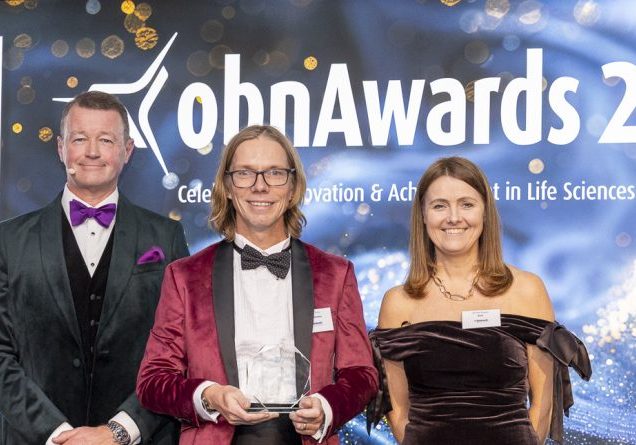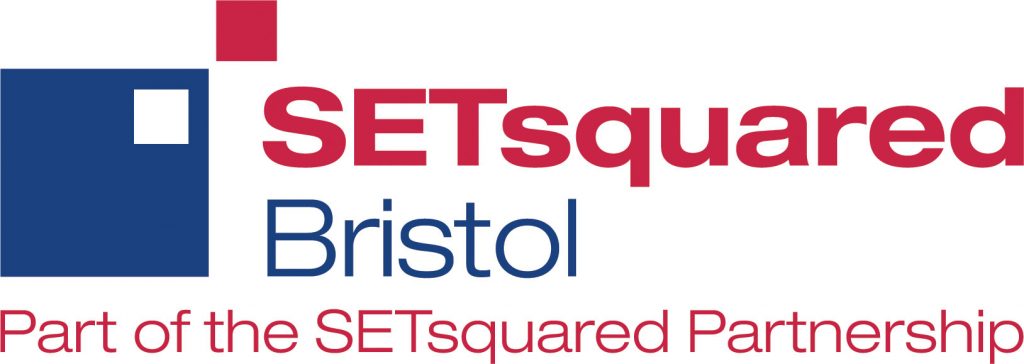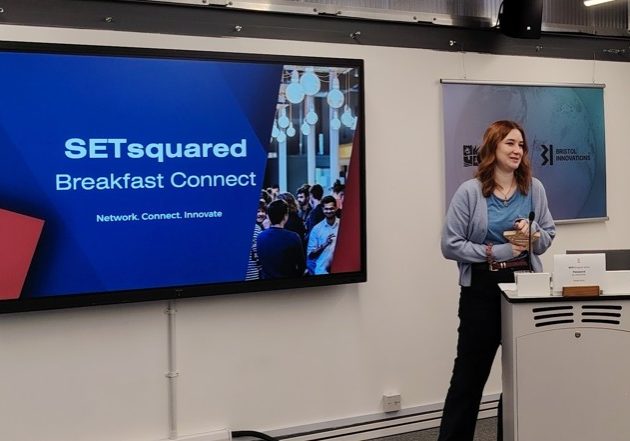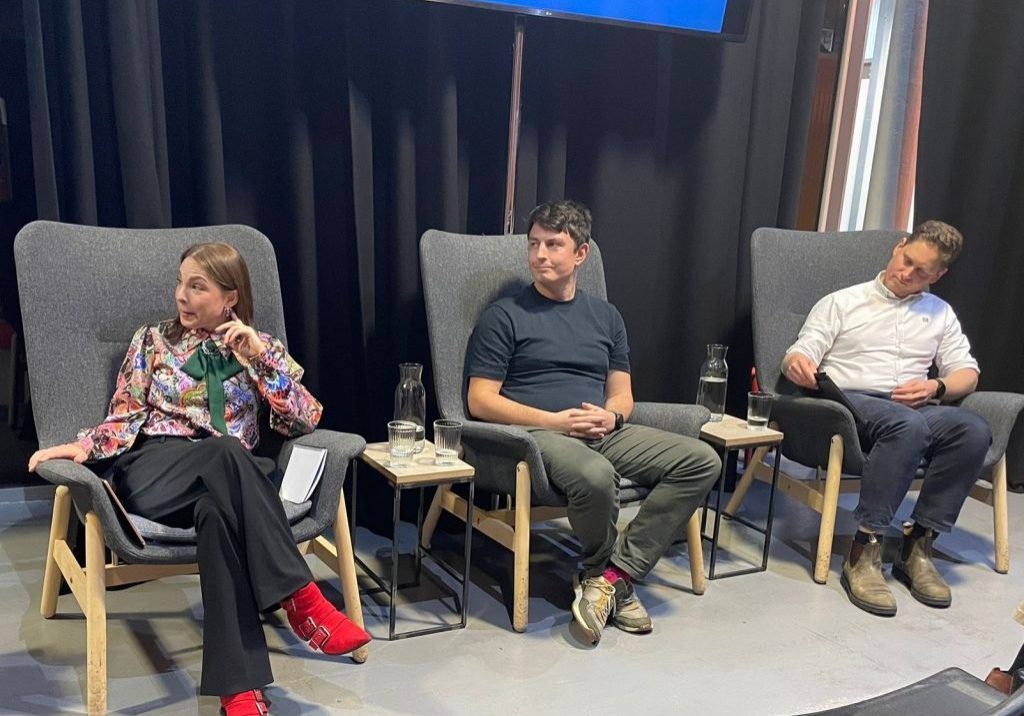Siloton: Photonics technology to prevent sight loss
Posted by
SETsquared Bristol
Following our member company Siloton’s £470k raise, which will further fund its diagnostic imaging technology to prevent sight loss, we had a chat with Co-founder and CEO, Alasdair Price, to hear his story…
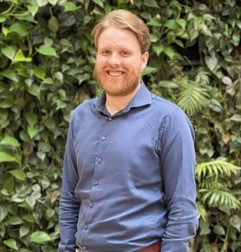 Siloton key facts
Siloton key facts
- Start date: 1 April 2020
- Market sector: Healthtech
- Location: Bristol
- Company growth status: Seed Stage
In your own words, what does Siloton do?
Siloton is developing an at-home monitoring service for the 25% of over 60s with age-related macular degeneration (AMD), the leading cause of sight loss in the developed world. At the heart of this is a personal optical coherence tomography (OCT) system that patients can use to take regular eye scans of themselves.
OCT scans are the gold-standard of eye imaging and are used by clinicians to determine when to treat patients with retinal disease, amongst many other things. They are akin to a high-resolution ultrasound but can only be accessed through hospitals and high-end optometrists because the scanners themselves rely on traditional optics that result in systems costing tens of thousands of pounds and taking up an entire desk.
Siloton’s personal OCT system is built around a photonic chip that compresses a tabletop-worth of heavy, expensive and fragile optical components onto a single piece of material smaller than a £1 coin. This is highly robust and can be mass manufactured at a price point that allows hospitals to prescribe OCT devices to individual patients for use in the comfort of their own home.
Even with a perfect healthcare system, it would not be possible to monitor AMD patients as often as is required, because current OCT hardware forces patients to come into the hospital. This means that many are losing sight unnecessarily, because they do not know they need another dose of treatment until their disease has progressed to the point where it has already begun to affect their vision.
Our personal OCT device, and the at-home monitoring service around it, will ensure that changes in the patient’s condition are picked up almost immediately. This means patients will retain their sight for longer, unsustainable levels of pressure on outpatient clinics will be alleviated, and the NHS will save half a billion pounds each year.
How has SETsquared Bristol support helped?
SETsquared Bristol has a very strong healthtech community and a bespoke business support programme to help us take the business forward. Being able to network and grow alongside other local healthtech businesses, as well as leverage SETsquared Bristol’s network of experienced professionals, has already helped to crystallise our strategy around our sales pipeline. This is hugely beneficial to Siloton as we become more sales-focused and encounter fresh challenges when dealing with customers.
Why did you pick Bristol as the city to build Siloton?
There is a reason why so many photonic chip companies have a connection to Bristol. The ecosystem that has developed here over the past ten years is unparalleled and we have been lucky to benefit from some incredibly high-impact initiatives that have taken place here. Prior to joining SETsquared Bristol, we joined the Quantum Technologies Innovation Centre (QTIC) which provides high-spec dry labs, equipment and a network to grow your business. Its unique structure meant that Bristol was a natural place for Siloton to start out. With startup friendly facilities and supportive communities in both the medical and photonics sectors, we’ve stayed here ever since!
What investment have you raised and what have you learnt from this process?
We spent the first couple of years bootstrapping the business before raising £470k in March 2022. This funded the development our first-generation Akepa photonic chip, which we recently used to image a synthetic eye. The image already allows for measurements of retinal layer thicknesses, which are a key marker of disease progression in treatable retinal diseases such as wet age-related macular degeneration, retinal vein occlusion and diabetic macular oedema, all of which affect millions of people worldwide.
From this, I have learnt how much can be achieved in such a short space of time with a small, dedicated team and only just enough money. It took less than 12 months for Akepa to be designed, fabricated, packaged, tested and used to acquire an image.
In parallel, we also designed and built a ‘binocular’ system to house the core technology, carried out multiple patient focus groups with the Macular Society to explore patient-device interaction, and developed proof of concept image analysis software that automatically detects disease and extracts key features from OCT images.
When I was working in academia, it could easily have taken twice as long and cost twice as much money just to develop something akin to Akepa and the binocular system. This really shines a light on the power of the startup mindset, and just how much you can do with a well-aligned, highly motivated and highly-skilled team.
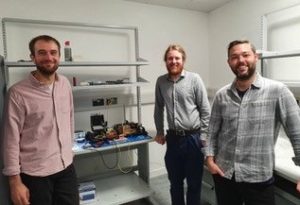 How is photonics going to help with the world’s most pressing problems?
How is photonics going to help with the world’s most pressing problems?
Photonic devices already underpin huge parts of our society. The internet, medical diagnostics and treatment, manufacturing, construction, navigation, and military operations, have all undergone significant advances because photonics has been used to overcome some of their most pressing challenges. However, these areas and others have been transformed using traditional bulk and fibre optics.
Photonic chips are the next major hardware revolution. They will have two key impacts. The first is to enable highly-complex systems to be developed, which would not be possible with current technologies due to the number of components that would need to be aligned and remain stable for long periods of time. A photonic quantum computer is one example of this type of system.
The second is to make traditional photonic systems more widely available. Medical diagnostics and monitoring are an ideal application of this because photonic chips can make complex systems affordable, mass-manufacturable, and robust. This means that imaging devices which are unable to meet patient access requirements or levels of demand will become available at scale wherever the patient needs them.
What advice would you give to other founders looking to start a business?
Maximum impact comes from correctly anticipating which billion-dollar niche is about to become the next big thing. If you want to be the leading company in a particular field, then by the time it hits BBC News, it’s already too late because there are multiple people who are further ahead of you, with far greater resources. By finding an area that is yet to receive significant coverage but where there are major pain points that you can address, you will gain a massive competitive advantage, especially if you can apply knowledge from other fields that is not available to others trying to solve your problem.
What’s next for Siloton?
We are now raising our next round, so interested parties are invited to get in touch via investors@siloton.com. This will allow us to image a live eye and to design Blue Jay, our second-generation photonic chip that will incorporate all of the improvements necessary to get the final product to market.
Recent News, Blogs and Stories
